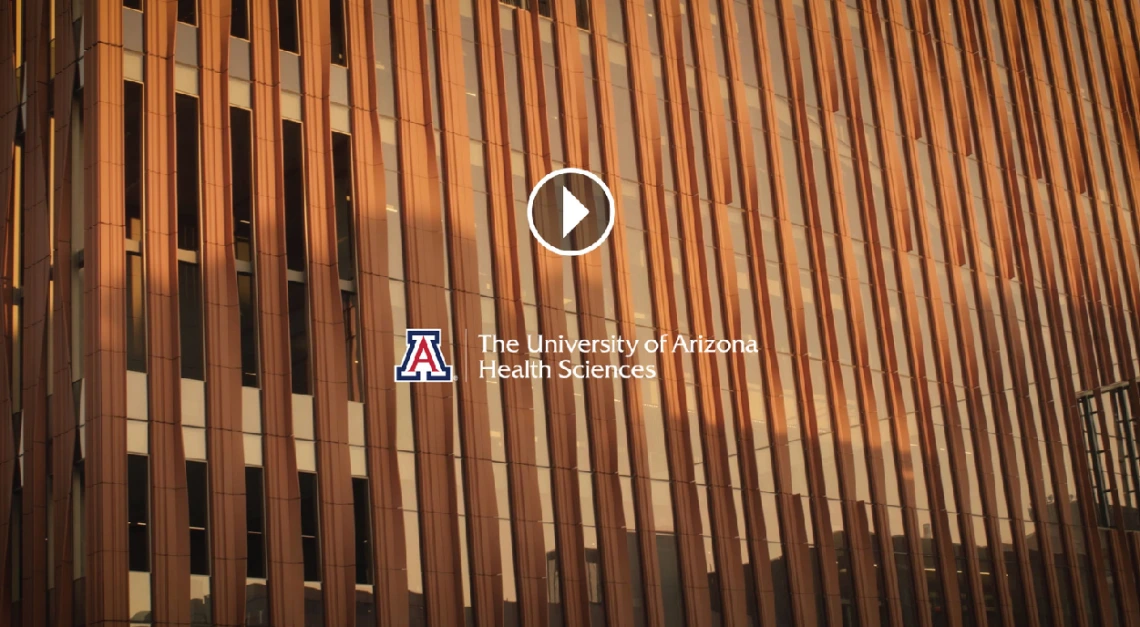Extending the Reach of Health Sciences in 2022
When the University of Arizona Health Sciences began to take shape 55 years ago, we started with a new College of Medicine in Tucson and then added the long-established Colleges of Nursing and Pharmacy, which moved from the main university campus to our Health Sciences campus in Tucson a few years later. By the mid 2000s, we had grown to include the College of Public Health and the College of Medicine in Phoenix.
Today we are one of the leading academic medical centers in the southwestern United States, with five colleges and a dozen Health Sciences centers and programs on campuses in Tucson, Phoenix and Gilbert. We employ nearly 5,000 people, have approximately 4,000 students and 900 faculty members, and garner more than $220 million in research grants and contracts annually.
Building on our education, research and public outreach achievements since 1967, including most recently our groundbreaking work in response to the COVID-19 pandemic, we are launching several new initiatives in 2022 to address critical statewide, national and global health care needs.
Under our Tomorrow is here focus, we are establishing new research centers and education programs to amplify the impact of our strategic initiatives that are advancing Next-Generation Education, Precision Health Care for All, Innovations in Healthy Aging, Building Defenses Against Disease and New Frontiers for Better Health.
We now have unprecedented opportunities to excel in education, research and outreach in more and better ways than ever before. Our relentless curiosity, interprofessional collaboration, leading-edge facilities, and purposeful inclusion of diverse perspectives and experiences give us an incredible advantage we can use to improve the health and well-being of people across the state of Arizona and around the world.
We have captured in a new video the spirit of what makes the University of Arizona Health Sciences such a special place.
This year on the education front, we are developing three new programs to address ongoing health care workforce shortages: a physician assistant program, a doctor of physical therapy program and a certified nurse midwife program.
We also are preparing for the launch of two new research centers that will extend the reach of medicine into more precise treatments, and another center that will use the knowledge gained from COVID-19 to better prepare for future pandemics.
- The Center for Regenerative and Restorative Medicine will focus on developing cell-based technologies that diagnose disease or heal injured tissue.
- The Center for Advanced Molecular and Immunological Therapies, to be based at the UArizona Health Sciences campus in Phoenix, will accelerate progress in the late-stage development and commercialization of personalized cell and gene-based therapies in cancer, autoimmune disease, infectious disease and immune monitoring.
- The Aegis Consortium will build partnerships with universities, foundations, nonprofits, governments and industries around the world to address gaps in pandemic preparedness, ranging from virology to immunology, communications and policy to behavior, and the built and natural environments.
Within our colleges and centers, three additional UArizona Health Sciences initiatives this year are specifically focused on improving health and wellness in Arizona.
- The Telehealth Expansion initiative will increase health care access to rural and other underserved communities, and provide additional telehealth training opportunities for current and future health care providers.
- The Valley Fever Collaborative will connect the state’s three public universities to develop precision medicine approaches, expand drug and vaccine development, and pursue environmental risk abatement to reduce the financial cost and human burden of Valley fever.
- The Arizona Melanoma and Skin Cancer Database initiative will build the only state registry and database of melanoma and non-melanoma skin cancer to better assess and address the full impact of the diseases.
The stories of how we are progressing on our new and existing initiatives can be found on our Tomorrow is here website.
I am confident that together we will make great advances in 2022. Thank you for your ongoing commitment to furthering our mission, as we educate the next generation of health care professionals, investigate and solve critical health care problems, and build healthier communities.
Michael D. Dake, MD
Senior Vice President for University of Arizona Health Sciences


